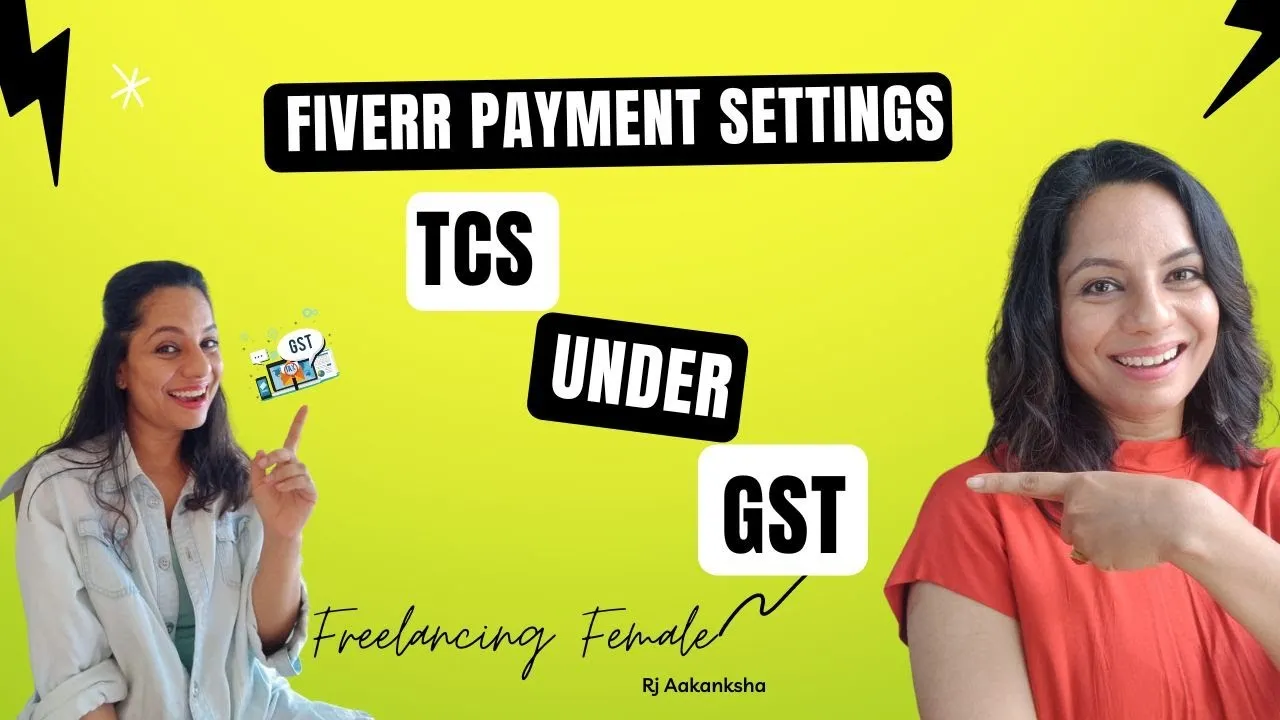When you work as a freelancer on platforms like Fiverr, you might find yourself confused about whether or not you should charge sales tax on your services. This subject can feel like a tangled web, especially since tax regulations vary widely by location and type of service offered. In this blog post, we’ll dive into the basics of sales tax and how it applies to your Fiverr gigs. We'll also explore some tips to help you navigate through this complex issue.
Understanding Sales Tax

Sales tax is a tax imposed by government authorities on the sale of goods and services. While it is commonly associated with physical products, many states and countries now apply sales tax to digital goods and services as well, including those sold on platforms like Fiverr. Here's what you need to know:
- What is Sales Tax?
Sales tax is typically a percentage added to the purchase price of taxable goods and services. The rate can vary based on the location of the buyer and seller.
- Why Does It Matter?
Understanding whether you need to charge sales tax on your services is crucial because failing to do so can lead to legal and financial repercussions. It’s essential to keep compliant with local laws.
- When to Charge Sales Tax on Fiverr?
Generally, if you’re providing a tangible product or a certain category of digital services, you may need to collect sales tax. For example:
- Graphic design services.
- Website development services.
- Virtual assistant services (may or may not be taxed depending on state).
- Exemptions and Variances
Keep in mind that some states offer exemptions for specific types of services or may have lower tax rates. It's crucial to research the rules applicable in your area.
All in all, understanding sales tax can be quite a maze. So, make sure to do your homework and keep up with the local tax laws regarding freelancing—especially when it comes to platforms like Fiverr.
Also Read This: Can I Switch to Seller on the Fiverr App?
Fiverr's Business Model

Fiverr operates on a unique business model specifically designed to accommodate a wide range of freelance services. Launched in 2010, Fiverr allows freelancers to offer their services, known as "gigs," starting at just $5 (hence the name). This marketplace connects buyers looking for specific services with sellers who can meet those needs. But what does that really mean for you as a buyer or a seller?
The platform predominantly features digital services like graphic design, writing, video editing, and programming. Here’s a quick breakdown of how it works:
- Sellers Create Gigs: Freelancers set up profiles and list their services, including prices, delivery times, and any necessary information about what the buyer can expect.
- Buyers Browse and Purchase: Customers can search for gigs based on various filters like category, price range, and seller rating. Once they find what they need, they can place an order directly.
- Payment Process: Fiverr takes a commission from each sale. This allows them to maintain the platform and offer customer support.
- Reviews and Ratings: After a transaction, buyers can leave reviews and ratings, which helps build trust within the community.
This model encourages competition among freelancers, often resulting in better quality and more affordable options for buyers. However, it also raises questions about business operations, including tax obligations. Understanding these elements becomes essential as you navigate the Fiverr ecosystem.
Also Read This: How to Fill Description in Fiverr: A Step-by-Step Guide
When Sales Tax Applies to Digital Services
Now that we’ve established how Fiverr works, let's dive into the intriguing topic of sales tax and its application to digital services. It's important to keep in mind that regulations can vary significantly by jurisdiction
Here are some key points to consider:
- Nature of the Service: In many states, tangible goods are subject to sales tax, but the rules can get murky when it comes to digital services. If the service provided is deemed 'permanent,' like downloadable software, some areas might require sales tax.
- State-Specific Regulations: Depending on your location, some states do impose sales tax on certain digital services. You might find that services like web design or graphic creation could fall under taxable categories, while others, like consulting or coaching, might not.
- Seller's Responsibility: Generally speaking, if you are a seller on Fiverr, it's your responsibility to research and understand whether you need to collect sales tax based on your services and your client's location.
- Buyer's Awareness: As a buyer, being aware of potential sales tax can help you budget more accurately. Make sure to check if the total price includes any tax charges.
In summary, whether or not Fiverr services are subject to sales tax is largely dependent on local regulations and the type of service provided. Keeping abreast of your respective state laws can go a long way in helping both buyers and sellers navigate these waters smoothly!
Also Read This: What Are Buyer Requests in Fiverr?
How to Determine Where to Charge Sales Tax
When you're offering services on platforms like Fiverr, knowing where to charge sales tax can feel a bit tricky. But don't let it stress you out! Let’s break it down together.
First off, understanding the concept of nexus is crucial. Nexus means having a significant presence in a state that gives that state the right to collect sales tax from you. So, if you live in New York and sell your services there, you most likely have to charge sales tax to your clients in New York. Here are some points to consider:
- Your Location: Where you are based can determine whether you should charge sales tax. Most states will require you to collect sales tax if you’re physically located there.
- Client Location: In many cases, tax laws also consider where the buyer is located. If your buyer is in a state that collects sales tax, you may need to charge them accordingly.
- Type of Service: Not all services are taxable. Some states exempt certain digital services from sales tax, so check the specific rules for your state.
- Fiverr's Location: Since Fiverr is based in New York, this can also impact how you manage sales tax. Zones where Fiverr operates can influence tax obligations.
If you’re really unsure about the rules, consider consulting with a tax professional or using reliable state revenue websites. It’s better to be safe than sorry when it comes to taxes!
Also Read This: Where is Fiverr Processed? Understanding Fiverr’s Operations
How to Charge Sales Tax on Fiverr
Alright, now that we've figured out where to charge sales tax, let’s talk about how to actually do it on Fiverr. Don’t worry; it’s simpler than it sounds!
When you set up your gigs on Fiverr, there's a straightforward way to incorporate sales tax into your pricing. Here's how:
- Create Your Gig: As you are creating a gig, you will input your base price. This is the amount before any taxes are added.
- Decide on Tax Inclusion: You can choose whether to include sales tax in your price or add it as a separate line item. If you include it in the price, just be aware that it might affect your competitiveness.
- Use Fiverr’s Built-in Tools: Depending on the current regulations and Fiverr’s features, there may be tools that help you calculate and display tax for buyers in different states.
- Make It Clear: Transparency is key! You should mention in your gig description that sales tax may apply depending on the buyer's location. This avoids any surprises for your clients.
- Payment Processing: Note that Fiverr typically handles payment processes, including sales tax collections. So, ensure you’re clear on how this works in your Fiverr account settings.
By following these steps, you’ll not only stay compliant with tax laws but also maintain a positive relationship with your clients. Remember, keeping everything clear and accurate helps in building trust!
Also Read This: Can I Trust People on Fiverr?
7. Implications for Sellers and Buyers
When it comes to charging sales tax on platforms like Fiverr, both sellers and buyers must navigate a pretty intricate web. While Fiverr is a convenient platform that connects freelancers with clients, the tax implications can affect how much you earn or pay.
For Sellers:
- Financial Responsibility: Sellers need to be aware of their tax obligations, which can vary significantly based on location. If you're in a state or country that mandates collecting sales tax, it’s crucial to include that in your pricing.
- Pricing Strategy: Failure to account for sales tax could lead to lower profit margins. By incorporating tax into your fee structure, you can ensure that the final amount you receive aligns with your financial goals.
- Reputation Management: Unforeseen tax charges can lead to dissatisfaction among clients, potentially affecting your seller ratings. Clear communication about pricing, including any taxes, helps manage expectations.
For Buyers:
- Total Cost Awareness: Understanding whether sales tax applies will help you budget better. If tax applies, it could affect which sellers you choose based on total pricing.
- Comparative Shopping: Buyers might find varying prices and tax implications among freelancers offering similar services. This encourages savvy shopping, where buyers compare not just services but total costs.
- Legal Implications: Buyers should be aware of the tax laws in their state or country. Depending on local regulations, failure to pay sales tax could lead to unexpected penalties.
In summary, the implications of sales tax on Fiverr can influence not just your finances, but also your professional relationships. Both parties must stay informed for seamless transactions.
8. Conclusion
This whole conversation about charging sales tax on Fiverr isn’t just about numbers; it’s about understanding the bigger picture. As a seller, knowing your tax responsibilities is crucial for your bottom line.
On the flip side, buyers also need to keep themselves informed so they can make the best purchasing decisions. Here are some key takeaways:
- Know your local laws: Whether you’re selling or buying, understanding the tax regulations in your area is fundamental.
- Communicate openly: Sellers should clearly state their pricing structure, including any taxes, to build trust with buyers.
- Seek Professional Advice: If you’re still unsure about your tax responsibilities, consulting with a tax professional can provide clarity.
In the end, the decision of whether to charge sales tax on Fiverr largely depends on your location and the nature of the service provided. By staying informed and transparent, both sellers and buyers can create a smoother, more satisfactory transaction experience.



